
More NASCAR Xfinity Series News
Congratulations Pour In for Xfinity Star Anthony Alfredo As He Drops Major Life Announcement Days After Our Motorsports Re-Signing
Xfinity Series star Anthony Alfredo shares a major announcement with NASCAR fanbase, days after re-joining Our Motorsports
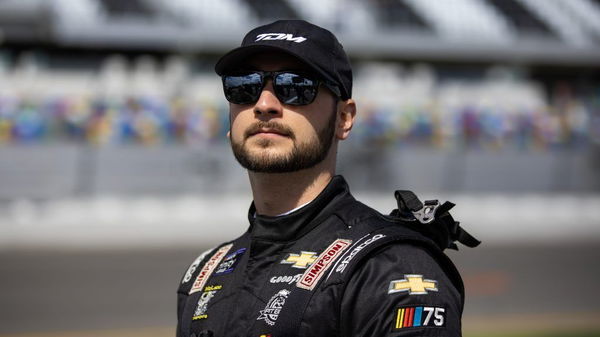
Tony Stewart’s NHRA Plans & Another Motorsports Milestone Could Be More Bad News for His Sinking NASCAR Team
With Stewart-Haas Racing in dire need of a comeback after the 2023 Cup season, Tony Stewart's increased focus outside NASCAR could spell trouble for the team.

Shane van Gisbergen Divulges the True Extent of His Trackhouse Racing Developmental Deal Amidst Imminent NASCAR Arrival
Shane van Gisbergen will race full-time in the NASCAR Cup Series in 2025 but before that, the Kiwi has lot of learning to do with Trackhouse.

Donny Schatz Unravels the Importance of His 28th World of Outlaws Stint Moments After Tony Stewart Racing Re-signing
Donny Schatz talks about the significance of his 28th Season in the World of Outlaws following a new season deal sign-up with Tony Stewart Racing.

“I Can’t Believe This Thing Still Exists”””Dale Earnhardt Jr Taken Aback by 33-YO Barn-Find That Once Propelled Him to Victory Lane
After 33 years Dale Earnhardt Jr saw the car he won a race with back in 1990. He found it in the old storage shed of Donnie's son.

“That’s the Soul of NASCAR, That Worries Me”- Insider Reveals the Bittersweet Effect on Next Gen Cars Amidst Short Track Racings Downfall
NASCAR reporter provided analytical points on the paradoxical impact of Next Gen cars concerning their declining performance on short tracks.
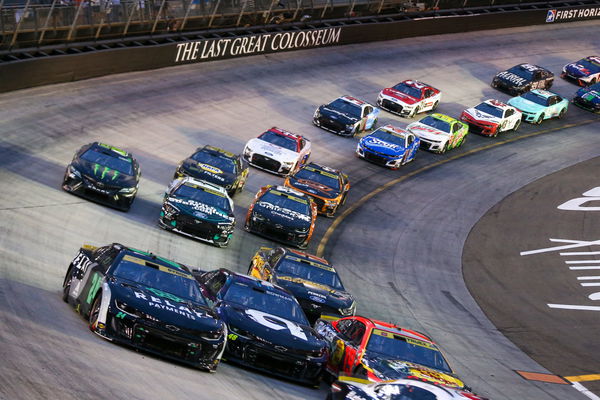
Left Hanging After the $40 Million Sale, Anthony Alfredo Finds a Seat for 2024 With Former Team Our Motorsport
Our Motorsports and Anthony Alfredo are set to reunite in 2024 in NASCAR Xfinity Series after BJ McLeod Motorsports' $40 million sale.
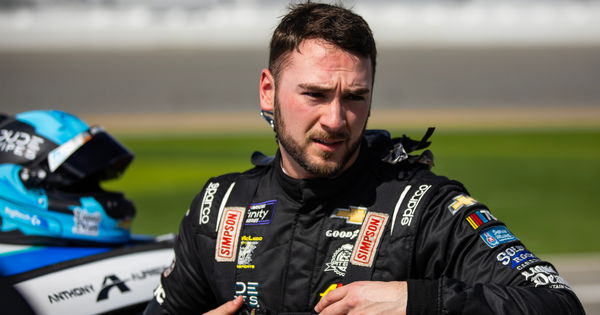
“A Victim of Your Own Damn Crime”- Fans Pass Harsh Verdict on Former Joe Gibbs Star Amidst Worsening Silly Season Woes
Observers render stringent assessment of the former luminary of Joe Gibbs Racing amidst escalating complexities of the current off-season.

‘I Can Barely Take Care of Myself’- Tony Stewart Reveals His Reservations on Parenthood Moments After Announcing ‘Family’ Plans
Tony Stewart and Leah Pruett are planning a family this year. Recently, the SHR owner shared his side of the story about how he feels about the decision.
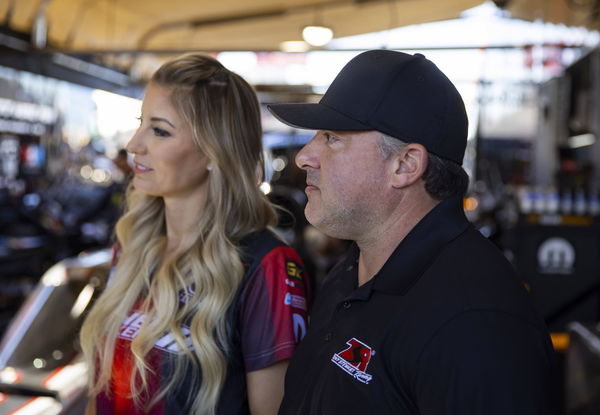
John Hunter Nemechek Cleverly Bites His Tongue Over Toyota Camry’s Questionable New Look
John Hunter Nemechek gives a tactful reply when asked about his opinion on the new Toyota Camry XSE for the 2024 Cup Series season.
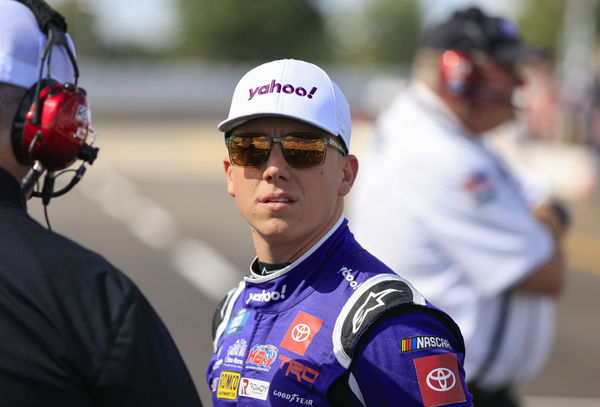
John Hunter Nemechek Offers a Contrasting Take on NASCAR Listening to Christopher Bell’s Push for Lesser Downforce
John Hunter Nemechek may be making is full-time debut in the NASCAR Cup Series but he shared some valid points about the Next-Gen car recently
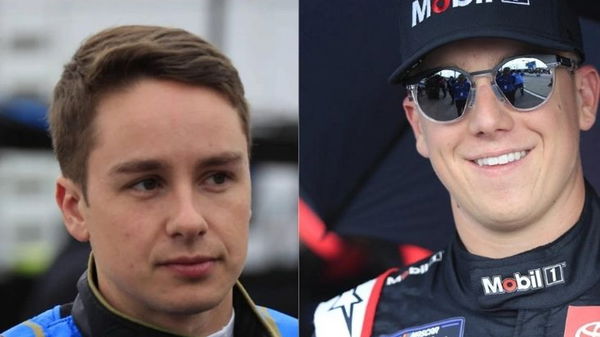
Full-Time Cup Series Return Hopes Crushed as A J Allmendinger Moves to Xfinity Series With Kaulig Racing
Following his full-time run with Kaulig Racing in the 2023 Cup Series, A J Allmendinger is forced to take a step back to the Xfinity Series.

About NASCAR Xfinity Series
NASCAR Xfinity Series: Origin, Teams and More
What is the NASCAR Xfinity Series?
NASCAR's Xfinity Series needs no introduction. Touted as the second-tier division of the stock car racing organization, the tourney has been a long-time contributor to thrilling races. The minor league of NASCAR, the Xfinity Series is considered a stage for young drivers to venture up to the association's high-level hustling, the Cup Series. The Xfinity Series races are held as a feeder race on the day preceding a Cup Series occasion planned for the end of that week.
Currently, the series hosts races at the same locations as the NASCAR Cup Series which include Intermediate tracks, Superspeedways, Short Tracks, and Road Courses.

USA Today via Reuters
Jul 15, 2023; Loudon, New Hampshire, USA; NASCAR Xfinity Series driver John Hunter Nemechek (20) takes the lead during the Ambetter 200 at New Hampshire Motor Speedway. Mandatory Credit: Eric Canha-USA TODAY Sports
NASCAR Xfinity Series Origin
The Series' inaugural session took place in 1982 when long-time NASCAR sponsor Anheuser-Busch decided to back a newly reformed late-model sportsman series with its Budweiser brand. The first-ever race in the division was held at the Daytona International Speedway, and the iconic legend Dale Earnhardt was the race winner.
As to when the series actually emerged, we will have to go back to 1950 when the NASCAR's Sportsman Division, the fourth series after the Modified, Roadster and Strictly Stock division, was formed as the organization's short track race division.

Why is it named Xfinity Series?
Today, what is known as the NASCAR Xfinity Series has had quite a few name changes over the decades. After its official debut in 1982 with Budweiser as a partner, in 1984, the series moved to being sponsored by Anheuser-Busch's Busch Beer brand instead. It is then that it came to be known as the Busch Grand National Series. However, the brewing company dropped the sponsorship in 2007 until subsequently, in 2008, insurance and financial services company Nationwide Insurance took the vacant spot and renamed the tourney the 'Nationwide Series'.
After the end of the insurance company's 7-year contract, in 2014, Comcast announced that it was going to serve as a sponsor for the series through its cable television and internet brand Xfinity, renaming it the Xfinity Series.
What is the format of the Xfinity Series?
The Playoff format was introduced in the NASCAR Xfinity Series in 2016. While it is similar to that of the Cup Series, the second-tier division uses a three-round playoff format instead of four, with 12 drivers in contention. At the end of the first two rounds, four drivers with the lowest season points of the 12 (and then 8) drivers, are eliminated. In the 2024 Xfinity Series season, there are a total of 33 races, consisting of seven playoff races and 26 regular season races.
NASCAR Xfinity Series Teams
Reportedly, more than 35 drivers participate in the NASCAR Xfinity Series every year, with three OEMs (Original Equipment Manufacturer), namely, Toyota, Ford and Chevrolet.
NASCAR Xfinity Series Venue
The first-ever championship race back in the Xfinity Series inaugural season in 1982 was held at the Martinsville Speedway on October 31. The speedway is a short track and is 0.526-mile in length. Currently, the Xfinity Series championship race is held at Phoenix Raceway at Avondale, Arizona. In 2024, it is scheduled to take place on November 9.
NASCAR Xfinity Series Championship
1982 was a good year for NASCAR driver Jack Ingram. Nicknamed 'The Iron Man', Ingram was the first-ever championship title holder in the NASCAR Xfinity Series, then called the Budweiser Late Model Sportsman Series. As for the defending champion, Stewart-Haas Racing's Cole Custer clinched the championship in 2023, beating JR Motorsports' Justin Allgaier and Sam Mayer.
There are several drivers who have shown their dominance in the Xfinity Series. However, unlike the Cup Series where icons like Richard Petty, Dale Earnhardt and Jimmie Johnson left others behind with seven championship wins each, NASCAR's second-division has had a more even field when it comes to title wins. Drivers like Tyler Reddick, Ricky Stenhouse Jr, Kevin Harvick, Martin Truex Jr, Dale Earnhardt Jr, Randy LaJoie, Larry Pearson, Jack Ingram and Sam Ard have each won two championships each, with the latest two-time champion being Tyler Reddick, in 2018 and 2019.
However, when it comes to Xfinity Series race wins, the balance is clearly tipped toward one side. With a staggering 102 race wins (with the latest victory coming at Atlanta in February, 2024) Kyle Busch sits atop leaving behind Mark Martin at 49 and Kevin Harvick at 47.

via Getty
KANSAS CITY, KS - OCTOBER 15: Kyle Busch, driver of the #18 NOS Energy Drink Toyota, celebrates in Victory Lane with wife Samantha and son Brexton after winning the NASCAR XFINITY Series Kansas Lottery 300 at Kansas Speedway on October 15, 2016 in Kansas City, Kansas. (Photo by Brian Lawdermilk/NASCAR via Getty Images)
NASCAR Cup Series Track Types
The NASCAR Xfinity Series organizes its races on four different types of tracks, namely, Intermediate tracks, Superspeedways, Short Tracks and Road Courses.
When it comes to Intermediate tracks, it simply means "any track greater than one mile in length, with the exception of both Daytona and Talladega" according to the official NASCAR website and currently the Cup Series drivers compete on the following Intermediate tracks/Speedways :
- Atlanta Motor Speedway (1.540-mile, Quad-Oval)
- Charlotte Motor Speedway (1.500-mile Quad-Oval, including a 2.280 miles Road Course)
- Darlington Raceway (1.366-mile, Egg-Shaped Oval)
- Dover Motor Speedway (1.000-mile, Concrete Oval)
- Homestead-Miami Speedway (1.500-mile, Oval)
- Kansas Speedway (1.500-mile, Tri-Oval)
- Las Vegas Motor Speedway (1.500-mile, Tri-Oval)
- Michigan International Speedway (2.000-mile, D-Shaped Oval)
- Nashville Superspeedway (1.333-mile, Tri-Oval)
- New Hampshire Motor Speedway (1.058-mile, Paperclip Oval)
- Phoenix Raceway (1.000-mile, Dogleg Oval)
- Texas Motor Speedway (1.500-mile, Quad-Oval)
- World Wide Technology Raceway (1.250-mile, Egg-Shaped Oval)
On the other hand, Superspeedways ae oval road courses of two miles or longer. Currently, the NASCAR Cup Series has the following Superspeedways:
- Auto Club Speedway (2.000-mile, D-Shaped Oval; Currently not in use)
- Chicagoland Speedway (1.500-mile, D-Shaped Oval; Currently not in use)
- Daytona International Speedway (2.500-mile, Tri-Oval)
- Kentucky Speedway (1.500-mile, D-Shaped Oval)
- Pocono Raceway (2.500-mile, Triangular Oval)
- Talladega Superspeedway (2.660-mile, Tri-Oval)
The short tracks (less than 1 mile in length) that are part of NASCAR are:
- Bristol Motor Speedway (0.533-mile, Oval)
- Eldora Speedway (0.500-mile, Oval; Currently not in use)
- Iowa Speedway (0.875-mile, Oval)
- Knoxville Raceway (0.500-mile, Oval
- Los Angeles Memorial Coliseum)
- Lucas Oil Indianapolis Raceway Park (0.686-mile, Oval)
- Martinsville Speedway (0.526-mile, Paperclip Oval)
- Milwaukee Mile Speedway (1.015-mile, Oval)
- North Wilkesboro Speedway (0.625-mile, Oval)
- Richmond Raceway (0.750-mile, D-shaped Oval)
As for Road Courses, NASCAR makes use of the following race tracks:
- Canadian Tire Motorsport Park (2.459-mile, Currently not in use)
- Chicago Street Race (2.14 miles)
- Circuit of the Americas (3.426-mile)
- DAYTONA Road Course (4.170-mile, Currently not in use)
- Mid-Ohio Sports Car Course (2.400-mile, Currently not in use)
- Portland International Raceway (1.967-mile, Currently not in use)
- Road America(4.048-mile, Currently not in use)
- Sebring Raceway (3.741 mi, Currently not in use)
- Sonoma Raceway (1.99-mile)
- Watkins Glen International (2.45-mile)
NASCAR Xfinity Series Cars
Just like the NASCAR Cup Series, the organization's second division has also seen many changes when it comes to its racing vehicles. Among them was the Gen 4 car, that made its debut in the division in 1992 and stayed for almost two decades, till 2010. The Gen 4 car was evidently different from all the other cars used as the model removed all "stock" aspects from stock car racing and made it aerodynamically sensitive.
As per reports, the "Generation 4 cars feature highly modified bodies with teams spending hours in the wind tunnel to gain aerodynamics. The bumpers, nose and tail are composed of molded fiberglass based on production counterparts".
Another notable model was the 'Car of Tomorrow' that ran in the Xfinity Series since 2010-full time. This model flaunts prominent front splitters under the bumpers and larger rear wings. Apart from that, according to NASCAR, the car also has "significant safety advancements and a return to symmetrical bodies".
How are Cup Series cars different from Xfinity Series cars?
Just like the two divisions are distinctly different, even the vehicles used differ in various aspects. Unlike the Cup Series that currently uses the 'Next Gen' car, the Xfinity Series car uses a vehicle that five lug nuts holding the wheels in place, as opposed to the Cup Series car that uses wider tires with a single lug nut. Apart from that, the Cup Series cars have a power output of 670 hp as compared to the Xfinity's 650 hp.
When it comes to the gearbox, the Next Gen cars have a 5-speed sequential shifter in use, whereas Xfinity vehicles have a traditional H-Pattern 4-speed shifter.

USA Today via Reuters
Nov 6, 2021; Phoenix, AZ, USA; Xfinity Series driver Daniel Hemric (18) beats Xfinity Series driver Austin Cindric (22) to the finish line to win the Xfinity Series Championship at Phoenix Raceway. Mandatory Credit: Peter Casey-USA TODAY Sports
How is the Xfinity Series different from the Cup Series?
The NASCAR Cup and Xfinity Series don't just differ in their names but also the way they operate among several other things. While NASCAR's top divisions has 39 races in a season. the Xfinity season has 33. As for the vehicles used for racing purposes, Xfinity uses the Chevrolet Camaro while the Cup Series makes use of the Chevrolet Chevrolet Camaro ZL1. Toyota also has two different models for the Cup and Xfinity with the Camry and Supra respectively. Ford also manufactures two different types of Mustangs for the two series.
The two divisions also have a significant difference when it comes to the prize money. If we look at the 2024 Talladega Superspeedway race that took place on April 21, 2024, the Xfinity race had race winning prize of $1,479,274, while the Cup Series winning driver was slated to receive $8,234,125.
Similarly, the 2023 Cup series champion purse was reportedly a hefty amont of $11,143,232. As for the Xfinity Series champion purse, while no official figures have surfaced, it has been deemed to less than that of the Cup Series prize pool.
NASCAR Xfinity Series Outside the United States of America
As an organization, NASCAR has always pushed towards globalization by hosting its races in different places around the world. One such effort came in 2005 when the Xfinity Series (then called the Busch Series) hosted their first-ever Mexico City race. And like the true champion that Martin Truex Jr was, he grabbed the race win expertly.
And just two years later, retired Cup Series veteran Kevin Harvick claimed another overseas win when the Busch Series went to Canada. The driver even beat hometown star Patrick Carpentier to claim the series' first-ever race in the country
| Full Name | NASCAR Xfinity Series |
| Place of Origin | Daytona Beach, Florida |
| Year of Origin | 1982 |
| First Race | Daytona International Speedway, 1982 |
| Last Race | 2024 Ag-Pro 300 at the Talladega Superspeedway |
| Crown Jewel Race | Daytona 500 (Daytona International Speedway), Coca-Cola 600 (Charlotte Motor Speedway), Southern 500 (Darlington Raceway), Brickyard 400 (Indianapolis Motor Speedway) |
| Drivers with the most Championships | - |
| Team with the most Championships | - |
| First Champion | Jack Ingram |
| Defending Champion | Cole Custer |
| Defending Team | Stewart-Haas Racing |

